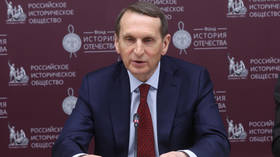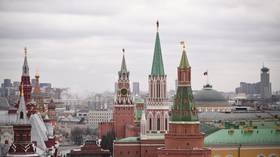Boris Johnson’s ‘moral hazard’: No money to save Thomas Cook, but plenty for war with Iran (if it comes)

The UK government has ruled out a peaceful intervention to save historic travel agent Thomas Cook, and 9,000 jobs, but has declined to rule out (a far more expensive) military intervention in the Gulf.
One day, two very different UK government decisions. Prime Minister Boris Johnson effectively signed the death warrant of 178-year-old travel company Thomas Cook, the world’s oldest holiday operator, by refusing to invest in the company the £150mn it needed to carry on trading. He said that bailing out Thomas Cook would have set up a ‘moral hazard’, in the case of other companies facing future financial difficulties.
Then, flying to New York for the UN General Assembly, the very same Boris Johnson declined to rule out UK military intervention in the Gulf, in relation to the attacks on the Saudi oil installations – which he says were carried out with “a very high degree of probability” by Iran.
“Clearly if we are asked, either by the Saudis or by the Americans, to have a role then we will consider in what way we could be useful,” Johnson said.
Also on rt.com ‘Don’t send warplanes & bombs’: Rouhani to present Persian Gulf ‘peace plan’ at UNHmmm... How much would intervention number two cost, Mr. Prime Minister?
Well, I think we can be fairly sure it would be considerably more than the £150mn needed to save Thomas Cook. Probably just a few days of military hostilities with Iran would cost that much. That‘s before taking into account the catastrophic impact it would have on world oil prices.
The elite-friendly priorities of governments in the neocon/neoliberal era has never been more clearly illustrated.
For a long time after World War II, Western governments, generally speaking, served the interests of the majority of the people, and their spending reflected this. But from the 1980s onwards, and particularly since the 1990s, when there was no longer the ‘threat’ of a rival economic system (communism), they’ve acted against the interests of the majority of the people. Spending on things the public wants, whether it’s libraries, local services, NHS dentistry, or legal aid, has been drastically cut back, while spending for ‘elite’ projects, like the Iraq War and other neocon regime-change operations – and, of course, bailouts of the financial services sector – has spiralled.
This puts Boris Johnson’s two statements in perspective. Generally speaking, it’s not the 0.01% who will be affected by the collapse of Thomas Cook. It’s ordinary folk who book their package holidays with the firm. That’s why the government’s response has been so pitiful. If Thomas Cook was a financial institution in the City which had got into difficulties, of course the money would have been made available. We’d be told our ‘entire economy’ would collapse without the government intervening. ‘Free market’ principles would have been jettisoned quicker than you could say ‘The Collected Works of Milton Friedman’. But Thomas Cook is not a City firm, so it can go to the wall.
Also on rt.com British travel giant Thomas Cook goes bankrupt, leaving 600,000 tourists in limboShockingly, but not surprisingly, some of the financial institutions that the UK New Labour government did bail out in 2008 have played a key role in the collapse of Thomas Cook, by insisting at the last minute on another £200mn for a rescue package. Creditor banks saved by the British taxpayer, including RBS in which the UK government still holds a majority stake, have once again failed to back British jobs.
The lack of economic patriotism is utterly shameful.
It’s also revealing to contrast the Johnson government’s ‘moral hazard’ approach with that of a previous Conservative government in the 1970s. When Rolls Royce, another famous British company on which thousands of jobs depended, got into difficulties in the early 1970s, Tory Prime Minister Ted Heath stepped in to nationalise the firm. The company was saved (under the name Rolls-Royce 1971 Limited), and both car and aero divisions are still going strong today. In fact, they’re world leaders.
Had Boris Johnson been PM in 1971, he would probably have let Rolls-Royce go bust.
It’s worth pointing out as well, for those who say that having a public stake in a travel firm is a crazy idea, that Thomas Cook was a successful state-owned travel company from 1948 until 1972. Ted Heath was right to nationalise Rolls Royce, but wrong to privatise Thomas Cook.
Also on rt.com ‘All flights & tours cancelled, expect SIGNIFICANT disruptions’: What to do if you are a Thomas Cook customer?No one disputes that there’s been some poor management decisions at the firm in recent years. Or that the company needed to make changes, which may have entailed radically new marketing strategies. But external factors which can’t be blamed on the firm also played their part. One of them is uncertainties over Brexit. Linked to this has been the falling pound, which has made foreign holidays more expensive. In the summer of 2015, shares in Thomas Cook were trading at above 160p. They fell to 3.62p on Friday. In May, the company said there was “now little doubt” that Brexit uncertainties had caused people to delay booking their holidays.
A public stake invested in Thomas Cook in return for equity would have given the company the time to adapt to changing circumstances and help protect jobs. As it is, the UK government is going to have to spend an estimated £600mn on getting the stranded 150,000 or so British tourists home from countries around the world and paying for their accommodation. To these costs must also be added the welfare payments which the 9,000 employees who have lost their jobs will probably need to draw upon, and the lost National Insurance contributions, so all things considered, the decision not to invest £150mn to save the firm makes no sense.
But that’s if we look at things logically. If we understand that the aim of the British government these days is not to help the people, but to pretend to, while actually shovelling wealth – and public funding – upwards, it all makes perfect sense.
RIP Thomas Cook, 1841-2019. Killed by a Conservative government which doesn’t conserve.
Follow Neil Clark @NeilClark66
Like this story? Share it with a friend!
The statements, views and opinions expressed in this column are solely those of the author and do not necessarily represent those of RT.















